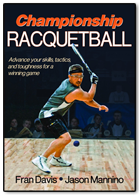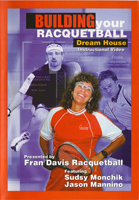The Art of Doubles Shot Selection
With The National Doubles Championships coming up in February 2016 I thought it would be apropos to cover some doubles shot selection. Shot selection is no different for doubles than for singles; you use the formula A (You) + B (Ball) + C (Opponent) + D (Score) = E (Shot Selection-choice of shot). Just remember there are two extra people on the court. Therefore your choice of shots needs to be smarter and more precise because you have to get the ball past two players instead of one, and you do not want to hit your partner. This makes doubles less forgiving—you have










